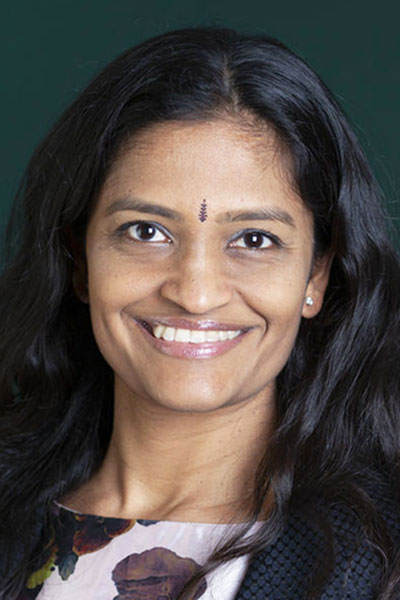Despite transformational advances in drug discovery and delivery, nearly 2 billion people around the world remain without regular access to essential medicines needed to maintain good health and prevent mortality and disability. Jayasree K. Iyer, PhD, MSc, CEO of the Access to Medicine Foundation in The Netherlands, shared this stark statistic in the opening session of the ACR Global Summit.

“That is the challenge that drives the work and mission at our foundation,” she said.
Dr. Iyer gave the keynote presentation during the Global Summit. Her presentation, “Drug Development: Need for Radical Changes to Ensure Access to Essential Medicine,” is available on demand for registered ACR Convergence 2023 participants through Oct. 31, 2024, on the meeting website.
Globally, the focus on access to medicine tends to be on noncommunicable diseases (NCDs) that significantly contribute to mortality; however, those that cause extensive morbidity, such as rheumatologic conditions, tend to be neglected, Dr. Iyer said. In addition, management of NCDs is not prioritized in low- and middle-income countries, leaving gaps in their health systems. Rheumatologic conditions are an even lower priority compared to cardiovascular disease, cancer, and diabetes.
“Our foundation also reports that people suffering from NCDs need a sustained supply of medicines, constant access to treatment options, and in some cases, access to complex treatment that requires highly skilled medical centers, all of which are not available in low-resource settings in low-income countries,” Dr. Iyer said. “And if they are available, they are cost-prohibitive. For example, diabetes patients are dependent on lifelong supplies of insulin, and require monitoring and delivery devices for appropriate self-management and avoiding complications, while prices for insulin are expensive. The same applies to rheumatologic diseases and drugs.”
Dr. Iyer identified four key issues contributing to the gap in access to medicine — availability, affordability, accessibility, and acceptability — that were discovered through research done by her foundation’s flagship publication, Access to Medicine Index.
“This is a ranking and rating of the largest pharmaceutical companies and is published every two years,” she said. “For almost 20 years, we’ve been tracking progress in identifying opportunities for 20 of the leading big pharma companies worldwide.”
However, the Access to Medicine Foundation is an independent, nonprofit organization and does not receive funding from the pharmaceutical industry or any other healthcare company.
Dr. Iyer also identified three key opportunities to increase access to medicines, including the increase of generic drugs and biologics, creating more equitable pricing strategies, and inclusive business models. Additional opportunities include increased access to oxygenation treatments and various measurement and diagnostic devices. She also noted that pharmaceutical companies need to make a greater effort to register their products in developing countries.
She concluded by encouraging everyone in the healthcare community to work together to bring access to medicines for patients around the world.
Register Today for ACR Convergence 2025

If you haven’t registered for ACR Convergence 2025, register today to participate in this year’s premier rheumatology experience, October 24–29 in Chicago. All registered participants receive on-demand access to scientific sessions after the meeting through October 31, 2026.
